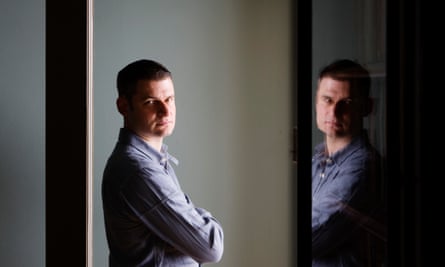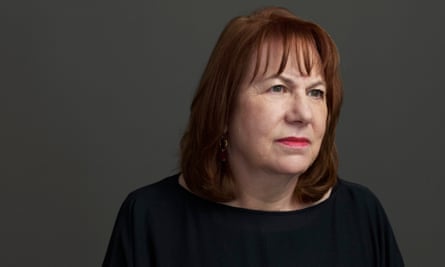In early February, after a month of lockdown, William Sutcliffe wrote on Twitter: “I have been a professional writer for more than twenty years. I have made my living from the resource of my imagination. Last night I had a dream about unloading the dishwasher.”
If the first lockdown was about finding space to write (along with a blitz spirit and a Tesco delivery slot), then the second has been far bleaker and harder for creativity. Whether it is dealing with home schooling, the same four walls, or anxiety caused by the news, for many authors, the stories just aren’t coming.
“Stultified is the word,” says Orange prize-winning novelist Linda Grant. “The problem with writing is it’s just another screen, and that’s all there is … I can’t connect with my imagination. I can’t connect with any creativity. My whole brain is tied up with processing, processing, processing what’s going on in the world.”
Grant describes waking up in a fog, and not wanting to do anything but watch rubbish TV. Her mind is not relaxed enough, she says, to connect with her subconscious. “My subconscious is just basically screaming: ‘Get us out of this’,” she says, so there’s no space to create fiction. “I don’t have the emotional and intellectual energy to give to these shadowy people to bring them out of the shadows.”

Sutcliffe, who is married to the novelist Maggie O’Farrell and has three children, has been dividing his time between writing and home schooling, which they share. During the first lockdown, he was in the middle of a novel and found it “a relief” to get his turn at the keyboard. In the second, he has been trying to dream up his next book, and “that kind of work is really, really incompatible with lockdown and with this stage of pandemic fatigue”.
After putting out that call on Twitter, he says, “I was inundated with responses from other authors who were struggling.”
The science fiction writer Jon Courtenay Grimwood sees the irony: “It’s weird as all hell. We spent our lives saying if only we could be locked away in a cave then inspiration and deadlines would be no problem and then it happens and it’s a disaster.”
Sutcliffe agrees: “Of all the people to be complaining about not being able to work, writers feel like the strangest group, because compared to everyone else our lives have changed the least. It’s interesting to see why it’s pushed so many off kilter.”
While adding caveats about being thankful for warm homes and roofs over heads, many will say that childcare is proving the biggest challenge. The novelist Natasha Solomons sends me a picture of the five-year-old “co-worker”, with whom she is now sharing an office.
“She mostly hates her headphones so I have the other 26 five-year-olds also yelling their phonics as I try to write a new novel of dark delights. Trying to write a sex scene at 9am is never my favourite, but with my daughter beside me yelling ‘Do you have any nouns on your desk, mummy?’ it’s pretty much impossible. Mostly I have to give up,” she says. “It reminds me of when the children were tiny babies, and I would write greedily in desperate bursts when they slept. It’s like trying to piece together a novel in fragments. But I think that’s how we all feel at the moment, like we’re broken into hundreds of pieces.”
When writing, “one wants spaces, those moments when something opens up inside you – a pause, a breath”, she says. “But there are no spaces now. They are filled entirely with snacks, anxiety, tears, number-bonds and desperate, snotty hugs.”

The author Holly Seddon, who has four children, has turned her laundry room – which is “a bit bigger than a cupboard” – into a mini-office. The constant noise, she says, is what is crushing her creativity. “It’s hard to let my characters speak to me when someone is always asking me to print their stuff off, or what’s for lunch or where their thing is. It’s hard to paint a fictional setting when the constant drone of my actual setting is scrambling my thoughts.”
Others, such as writer Gillian McAllister, are most affected by the lack of serendipitous glimpses of other lives. “I think authors take so much inspiration from things like the clothes a stranger is wearing, the smell of their perfume, their body language, seeing a couple interact in a bar,” she says. “I’m having to mine my memories for this stuff, which is less authentic and lacks a kind of specific detail that I like to write about in ordinary times.”
Grant has also felt “completely cut off from material”. “I felt I was forced into this interiority, when there was no exterior, no outside to engage with,” she reflects. “You don’t have those overheard conversations on buses, there’s no stimulus. It’s just a sort of sea of greyness, of timelessness.”
Holly Watt, author of the thriller To the Lions, has found the last year challenging. “I have realised that I magpie a lot of my friends’ jokes and need the conversation of normal life,” she says. “The other day, my partner and I had a fairly long chat about the different noises the dishwasher makes – I don’t think that’s the sort of thing my heroine would notice. I have learned to accept that on some days, I just can’t write.”
Thriller writer Phoebe Morgan, who is also an editor at HarperCollins, is finding the difference in creativity between last year’s lockdown and this year’s very stark. “I don’t have children, but the endless cycle of washing/cooking/chores combined with trying to move house definitely feels as if it is stifling my creativity as a writer, and as an editor as well,” she says. “I find it much harder to focus properly on reading exciting new submissions because it feels as though my brain is becoming dulled down by the constant claustrophobic feeling of being in the same four walls.”
She’ll sit down to write – her next book is due to her editor on 1 May – and find herself noticing a corner of the floor she hasn’t hoovered, “as if my mind is honing in on these silly mundane details rather than doing what it’s supposed to and actually getting the words on the page”.
And how to research, when libraries are shut and travel is impossible? Children’s author Tom Mitchell’s next book is set in the “wild countryside”, but he’s “ended up having to go on Google Maps to get inspiration and to take a break from staring out of the window of my spare room on to the tiny garden below”. Mitchell, who is also a teacher, married to a teacher, and father to two small children, says this is “not helping”.
As Grant points out, this is “a once in a blue moon example of every writer being affected by exactly the same situation”. “Not even the second world war was the same, because men and women were affected differently. But we’re all affected by this,” she says.
So are we likely to be deluged, in a year’s time, with locked-room mysteries, or stream-of-consciousness novels about unloading the dishwasher? “It’s a massive problem for contemporary novelists, most of whose novels are set in a non-specific version of now,” says Sutcliffe. “You can write a novel set in 2013, 14, 15, but 2019, 20, 21, these are three completely different worlds. We can’t have every novel being about the pandemic, but [assessing] the degree to which you acknowledge it is really hard.”
And, will people even want to read about it? “Maybe in a few years,” Grant muses.
